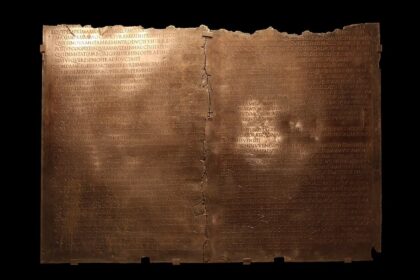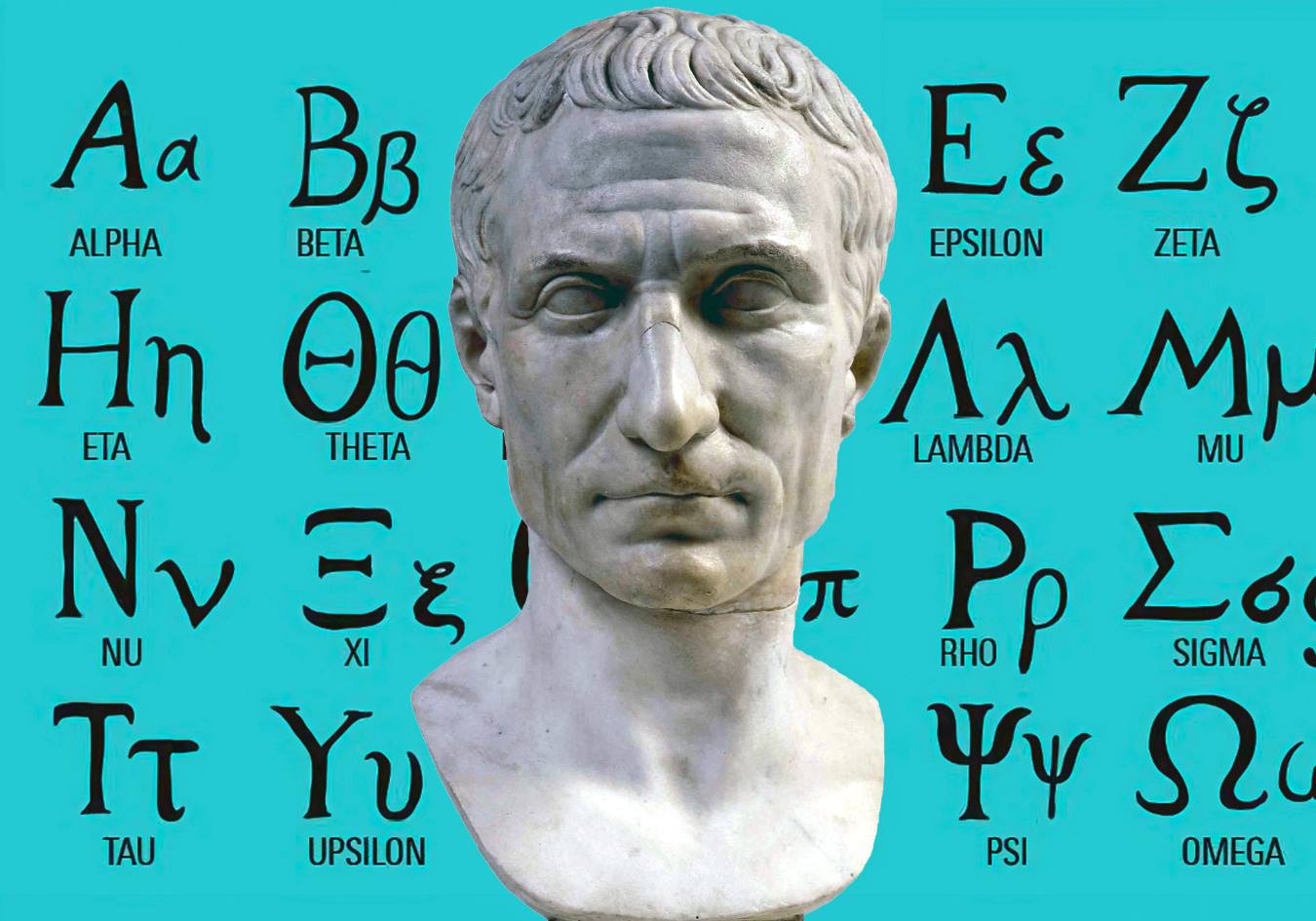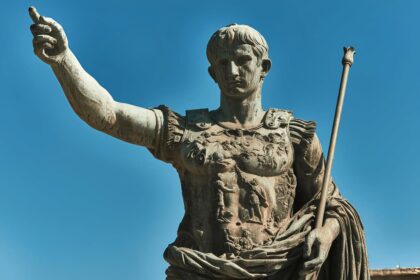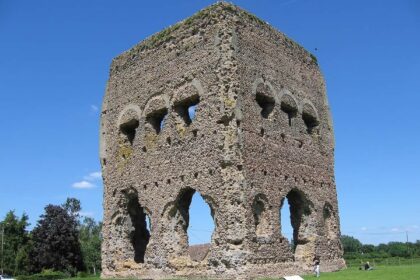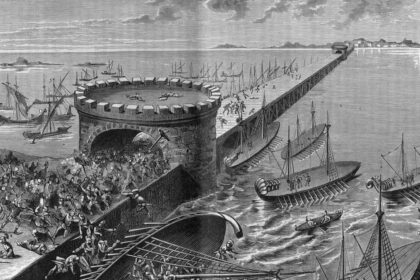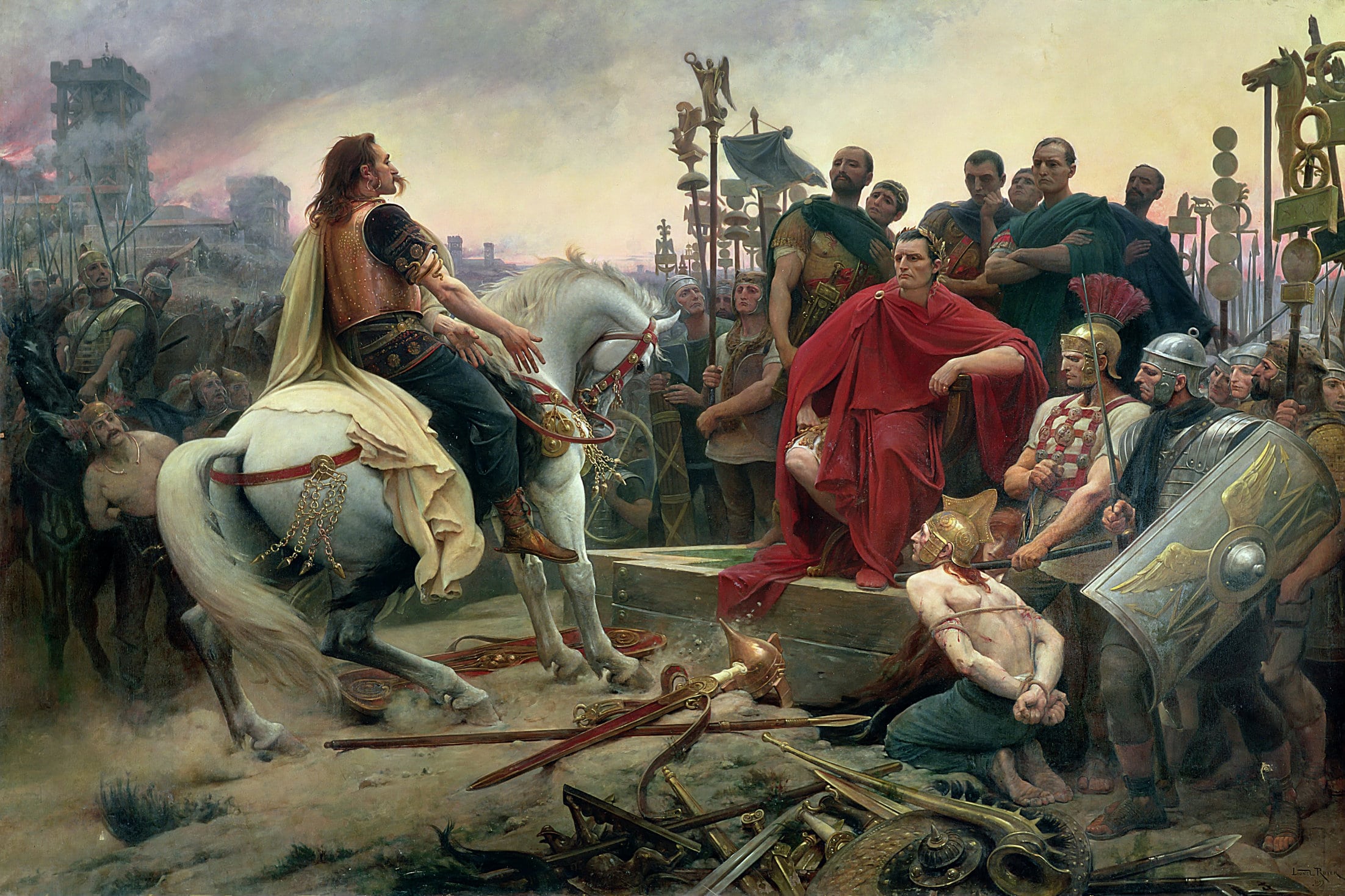Was Julius Caesar a good leader? Gaius Julius Caesar was without a doubt a remarkable leader, and it is not surprising that his reputation has endured to this day. He was not only an excellent commander and orator but also a kind and merciful ruler when it came to the Romans. This had an impact on Caesar’s standing before his soldiers. Caesar was a skilled public speaker who could motivate his soldiers with a succinct yet well-organized speech. He was well liked by them, and Caesar personally knew all of his centurions and the best warriors. As a leader, Julius Caesar stood out for his tenacity, prudence, and endurance. Caesar was the leader of the Roman army during the Gallic Wars. And he emerged victorious against his political rival in a civil war to become dictator of Rome in 49 BC. He is still recognized today as one of the most successful military leaders in history.
I had rather be first in a village than second at Rome.
Julius Caesar
Julius Caesar’s Good Relationship with His Soldiers

Many well-known stories attest to the high regard in which Caesar held his soldiers. To keep the legionnaires happy, Caesar raised their pay forever and sometimes gave them slaves as gifts. With the same fervor, he won over kings and provinces to his cause. He gifted thousands of captives to some while sending soldiers to their aid whenever he pleased. He did this all without the consent of the Senate or the people.
Caesar was used to leading armies numbering in the tens of thousands. When he heard that a small group of his soldiers were under siege, he once again promptly rode to the battlefield to rescue them. A storm had forced a fleet carrying 300 legionnaires to go aground on the shore during the war in Gaul. And they were quickly encircled by a considerably larger band of Gauls. The Romans took defensive positions. After that, Caesar rode up at the head of his cavalry and launched a surprise assault from behind the enemy lines.
Caesar was a brilliant and charismatic leader. He led his army to tremendous triumphs while also rescuing them from impending loss on several occasions. As the most significant trait of a good leader, Caesar cared deeply about his troops and their safety. He was often seen at the front lines during fights and promised enormous prizes in the event of success.
All of these things led to soldiers who were entirely devoted to Julius Caesar. They were prepared to follow him on any campaign and obeyed his commands even when death looked imminent. A short speech from Caesar once put an end to at least two mutinies that were occurring during the Civil War.
Was Caesar a Good Strategist and Tactician Leader?
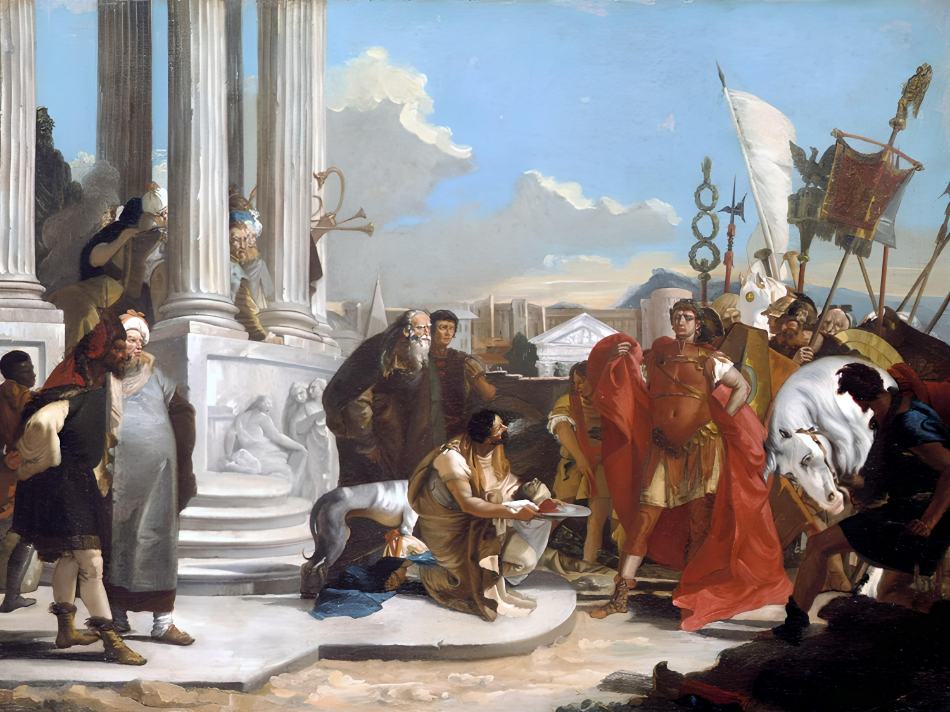
Julius Caesar was a good leader for many reasons. He was also a brilliant tactician. He constantly worked to accomplish a strategic aim and had a strategic goal in mind. He was ahead of everyone. Caesar knew that his acts against one populace would elicit a reaction from another. He often used this reaction to conquer an area and achieve his strategic objective.
Caesar was in command of between four and seven conflicts during his lifetime. And in every one of them, Caesar consistently made progress toward an obvious “end goal.”
- Caesar oversaw a successful operation to repel the Germanic tribes’ invasion with a specific strategic goal in mind.
- He led a campaign against a number of Gallic tribes with the express purpose of capturing Gaul.
- He led a fight against the Roman Senate in order to accomplish his strategic objectives. This includes the conquest of Italy, the triumph in Spain, and the invasion of Greece.
- Caesar oversaw a conflict with the Egyptians or took part in a civil war while still establishing and attaining his strategic objectives.
Then we go on to tactical issues, which Caesar, as a leader, was also quite good at.
- Caesar’s combat strategy at the Battle of Pharsalus (48 BC) against Pompey was ingenious, and flawless.
- In the Battle of Alesia, his tactical strategy was flawless and helped him triumph over difficulty.
- He had a fantastic tactical strategy against the Celts in Britannia.
When it came to tactics, Caesar was inventive, crafty, and intelligent as a Roman leader.
As a Good Leader, Julius Caesar Often Pardoned His Enemies
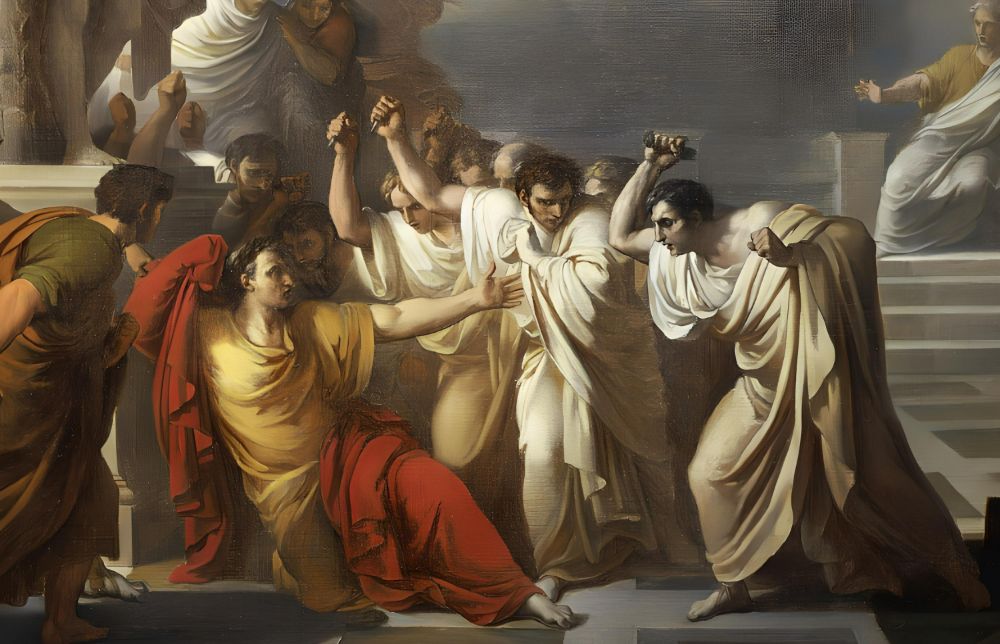
Even his Roman opponents could feel Julius Caesar’s sympathy. During the civil war with Pompey, Caesar pardoned many of his adversaries, mostly because he was sympathetic to the Romans as a leader. However, his pardons of Gaius Cassius Longinus, Decimus Brutus, and Marcus Junius Brutus show that he underestimated their personalities. On the Ides of March in 44 BC, they plotted and carried out Caesar’s assassination. While he tried to be a good leader, he misjudged his Roman adversaries and brought himself to his own end.
Julius Caesar was well-liked by the people of Rome due to his successes in Gaul and his effective use of propaganda. Despite having a son, Caesarion, he wisely chose his great-nephew Octavian as his heir. This was to avoid making Cleopatra, Caesarion’s mother, queen-regent of the Roman republic. As she could potentially establish an autocracy that Caesar did not desire. This decision alone demonstrates Caesar’s good leadership.
In 45 BC, at the height of his power, Caesar had unified the Mediterranean under his dominion and consolidated his hold over Rome. He still did not hesitate to implement policies that mostly benefited the poor.
Julius Caesar’s Not-So-Good Leadership Decisions
All those who knew Caesar or wrote about him pointed out that his self-interest was a major flaw. Caesar was hardly a miser, but he had little interest in selfless giving and spent lavishly only when it served his personal interests.

According to Suetonius, Julius Caesar lacked selflessness in both his personal and professional lives. Despite his sharp intelligence, exceptional military skill, and nuanced political insight as a leader, many of Caesar’s feats were accomplished through bribery. Caesar constructed a forum on his property that cost more than a hundred million denarii in an effort to win over the Roman populace.
Caesar was a military genius. His Gallic Wars, notably his siege of Alecia, are evidence of this. He also excelled as a writer of considerable renown. Most students who study Latin today eventually read Caesar’s “Gallic Wars.” As a politician, he was clever as well. He ran for and was elected to many posts in the Roman Republic, including consul (the highest office).
However, Julius Caesar was likewise vicious in his own way. Caesar may have been responsible for the deaths of hundreds of thousands of Gauls during his Gallic Wars. A large portion of the Gauls were sold by Caesar in the slave markets, which he used to amass a fortune.
Caesar had a great monetary obligation to Crassus before the Gallic Wars. Caesar hoped that by eliminating and enslaving Rome’s foes, he wouldn’t lose favor with the Roman people. To top it all off, he aimed to make money. After the victories in the Gallic Wars, he was among the wealthiest Romans.
Was Julius Caesar a good leader? As a great leader, Julius Caesar was not without controversy. At later points of his leadership, he was too ambitious and just wanted power for himself. To some historians, his murder in 44 BC was the direct result of his lust for power.
It was when Caesar crossed the Rubicon in 49 BC that the Roman Civil War began, thereby ending the Roman Republic. Caesar may have started to restructure the Republic if he hadn’t been killed. But his actions only bolstered his dictatorship. He increased the Senate’s membership to 900 and gave himself tribunician and censorship powers.
The Great Legacy of Julius Caesar’s Leadership
Julius Caesar’s leadership, notwithstanding these problems, was significant to the development of the Roman Empire. His military victories and political reforms laid the groundwork for the development and prosperity of the Roman Empire. When it comes to his own people, it is safe to say that Julius Caesar was overall a good leader.
Julius Caesar was a good leader because he knew how to talk to his soldiers and get them ready for battle. Many military triumphs and the expansion of the Roman Empire can be attributed to Caesar’s willingness to take risks and make bold choices.
Julius Caesar was renowned for his skill in handing off duties to his staff. He was not an overly controlling leader. Instead, he put his faith in his advisers and generals to handle the nuts and bolts of his campaigns so he could always concentrate on the big picture.
For centuries after Julius Caesar’s death, the Roman Empire, which was greatly enlarged and cemented under his leadership, remained a global power. The military victories and campaigns of Julius Caesar left an indelible mark on Roman military doctrine and practice. Julius Caesar’s writings, especially his accounts of the Gallic Wars and other events, had a big impact on the fields of history and war.
Bibliography
- Michael Colegrove ,2007. Distant Voices: Listening to the Leadership Lessons of the Past. iUniverse. ISBN 9780595472062.
- Suetonius. Lives of the Caesars. Barnes and Noble Library of Essential Reading Series. ISBN 9780760757581.
- Plutarch, Caesar, Library of Congress.
- James Anthony Froude, 1879. Life of Julius Caesar. Project Gutenberg.









